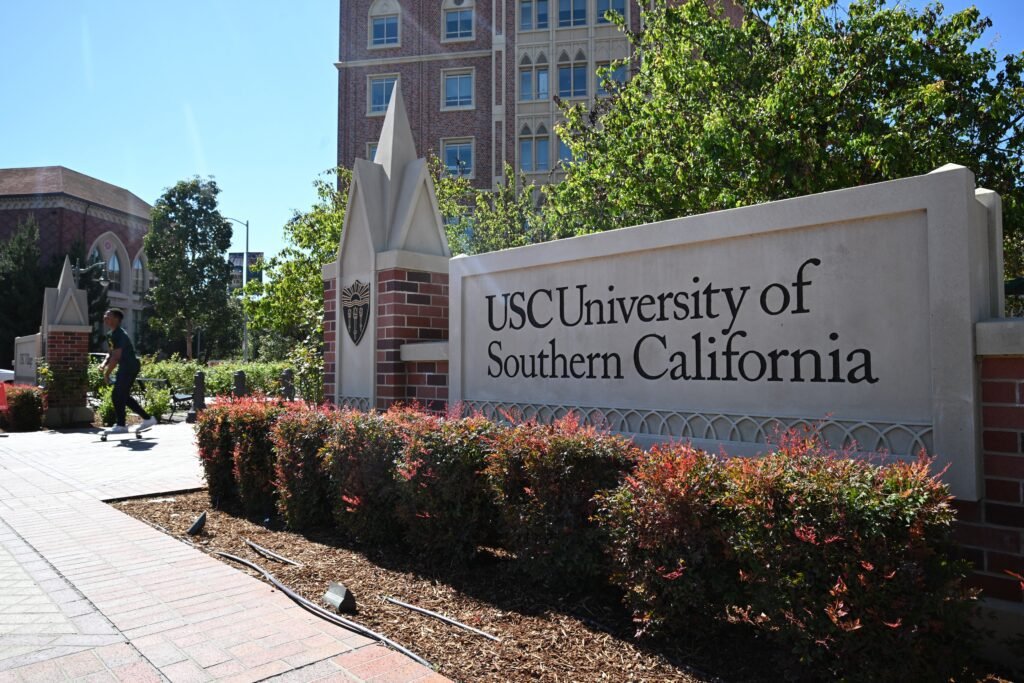Recent years have witnessed numerous high-profile legal battles within academia. One such dispute that has garnered significant media coverage is that of C.W. Park at USC; this blog aims to offer an in-depth examination of his claim at this University, while covering key facts, legal arguments, and wider ramifications involved with this case.
Who Is C.W. Park?

C.W. Park was an internationally acclaimed marketing scholar at USC Marshall School of Business where he taught consumer behavior, brand management, and marketing strategy courses. Park’s expertise also extended into academia with various publications featuring his works published across various journals highlighting his contributions in these areas as well as mentoring of students – something his sudden termination caused much consternation among colleagues in academia as well as business circles alike.
Legal Action: Key Points
C.W. Park’s lawsuit against USC involves allegations of unfair termination and retaliation, specifically his termination for whistleblowing activities that caused hostile environments at USC where his statements about certain administrative practices at the university were met with hostility resulting in his dismissal. These allegations reveal an important broader discussion surrounding how academic institutions handle disagreement and criticism within academic environments.
Legal Grounds
C.W. Park filed his lawsuit against USC on a number of legal bases, such as:
- Wrongful Termination: Park alleges that his dismissal from employment was unreasonable, unwarranted, and with no valid grounds; instead it appears designed to silence critical voices within society.
- Retaliation: He alleges that his termination was motivated by revenge in response to his whistleblowing activities which are supposed to be protected under law.
- Violation of Whistleblower Protection Laws: According to Park’s legal team, his dismissal violated laws designed to protect whistleblowers against retaliation; their argument being that Park acted in the best interest of both his institution and its stakeholders by raising concerns with them about potential illegal practices at work.
USC Response

In response to C.W. Park’s claims of discrimination by USC administration and Park himself, they maintain that his termination was justified after conducting a full and extensive investigation of Park’s conduct and performance. USC insists it has always prioritized faculty and student well-being while adhering to policies and procedures; according to USC Park was dismissed without any intention for reprisal but rather as part of an administrative action plan necessary to fulfill USC policies and procedures.
Broader Implications for Academia
The C.W. Park USC lawsuit holds profound ramifications for academia as an entire, including faculty rights and whistleblower protections. It highlights potential dangers faced by academics who challenge administrative practices as well as emphasizes their need to protect their rights and assert them accordingly.
Whistleblower Protection in Academia
Whistleblower laws play an essential role in safeguarding individuals who report illegal or unethical behaviors within an organization, by protecting whistleblowers against being subjected to any form of reprisals such as firing or harassment as punishment for their courage. Park’s lawsuit highlights the need for stronger safeguards to protect whistleblowers in academic settings.
Faculty Rights
This lawsuit highlights the significance of providing faculty members at universities with transparent policies and processes that respect their rights while upholding discipline at institutions. Finding an acceptable balance between maintaining discipline and protecting faculty rights could set precedent in similar future cases; potentially impacting policies nationwide.
Ongoing Developments
C.W. Park’s USC lawsuit continues apace with both sides gearing up for an intense courtroom contest. This high-profile legal dispute has drawn significant media coverage and great anticipation about its resolution; C.W. Park remains firm in his assertions of wanting to reform university and speak out about what he sees as fundamental problems within it.
The Importance of Protecting Whistleblowers
One key takeaway from the C.W. Park USC lawsuit was the need to protect whistleblowers. Whistleblowers play an invaluable role in uncovering misconduct and creating an atmosphere of accountability, so it is vital that comprehensive safeguards for whistleblowers exist so as to allow them to speak their minds without fear of reprisals from authorities or management.
Academic Institutions and the C.W. Park USC Lawsuit
Academic institutions should heed the warning posed by the C.W. Park USC lawsuit and its far-reaching ramifications, especially its wide repercussions. Universities must review their policies to ensure compliance with whistleblower protection laws while creating an atmosphere where faculty are free to express concerns openly without fear of reprisal or backlash retaliation or reprisals from administration retaliating in any form; this case serves as a catalyst for change needed in how universities handle internal criticism while protecting faculty.
Legal Precedents and Their Implications
Legal precedents have an immense effect on academic organizations’ policies and practices. The outcome of C.W. Park USC case could set an important legal standard that will guide how similar situations are managed going forward; should C.W. Park win, it might give other faculty members confidence to voice their complaints knowing that they have legal protection to do so; should USC prevail instead, its victory might reinforce existing procedures while at the same time suggesting additional protocols or safeguards be put in place to provide greater safeguards to protect faculty rights.
Potential Outcomes
The possible outcomes of C.W. Park’s lawsuit at USC are diverse. Should Park win, his victory could create significant changes to how universities deal with whistleblower complaints and terminations – this verdict may encourage academics to come forward with their concerns, creating a more accountable academic environment; or should USC win, their victory might confirm existing practices while calling into question clearer guidelines or stronger protection for faculty.
Overview
The lawsuit between C.W. Park and USC is an intricate one with far-reaching implications for academia. It raises vital issues regarding faculty rights, whistleblower protections and university governance that need to be discussed more widely; while its outcome remains indeterminate at present. But its involvement has already generated widespread dialogue about such crucial matters.
Protecting whistleblower rights and providing fair treatment of faculty is critical to upholding academic institutions’ integrity and credibility. C.W. Park’s legal case at USC highlights this importance; regardless of its outcome, his lawsuit could impact how universities or other institutions handle similar matters going forward.
For further reading on whistleblower protection laws, it would be useful to visit National Whistleblower Center

